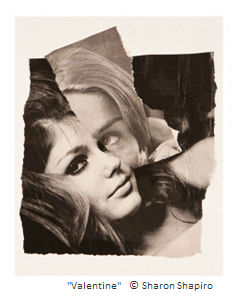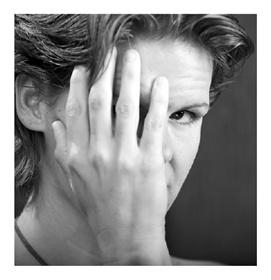“Don’t be ugly,” she used to say.
 She wasn’t referring to my appearance, but rather, to my behavior, which basically included anything that met with her disapproval.
She wasn’t referring to my appearance, but rather, to my behavior, which basically included anything that met with her disapproval.
Still, being on the receiving end of “ugly” in any context isn’t generally welcome. Certainly not from your mother, from siblings who tease, from bullying kids on the playground, or careless, callous adults who name call because they have nothing more intelligent in their arsenal.
But when your own reflection in the mirror whispers what you don’t want to admit – that you aren’t like everyone else, that maybe you are ugly – then what?
Is inner beauty really enough?
In my childhood and adolescence, I was chided for my nerdy look, for being fat, and like many children, I compensated any way I could – in my case, pouring myself into academic achievement.
The Ugly Experience
Earlier this week I read an article in the August issue of Elle Magazine. “The Ugly Truth,” written by novelist and essayist, Ann Bauer, gets to the heart of her personal experience as one who was deeply affected by being “ugly.”
Offering examples from childhood into adulthood, Ms. Bauer describes a lifetime of feeling scorned for her unruly hair, her pale skin, her broad face, and her prominent nose. Only after a trip to Eastern Europe where she resembled the women around her, did she begin to see herself as not ugly, and possibly – beautiful.
Bullied into Surgical Intervention
A related article caught my eye, this from Psychology Today, exploring the issue of women who change appearance in response to years of bullying.
According to the article,
The number of American teens receiving surgery in general is on a steep rise. According to American Society of Plastic Surgeons (ASPS), nearly 219,000 cosmetic surgeries were performed on people age 13 to 19 in 2010. More and more are seeking procedures upon graduating from high school so that they begin their college years with a fresh “look.”
“Beginning with a fresh look.” As if that would do the trick!
Beauty over Health
Yet another source, PsyPost, features its coverage of college students and their preoccupation with appearance over health. Focused on young women and body-image, PsyPost reports on one study’s findings:
… how body image is associated with engaging in restrictive diets, irregular sleep patterns and over-exercising…
“We receive so many conflicting media messages from news reports and advertising about how we should eat, how we should live and how we should look”…
The Beauty Trap
So what about “inner beauty” – is it a myth? What about the millions of interventions that take place each year, that one could argue are necessary to self-esteem? In a world that grows increasingly superficial, is our appreciation of an exotic face or even a different one now a thing of the past?
What about 200,000+ procedures for 13 to 19-year olds? What about physical attributes that can’t be “fixed,” like extremely tall or extremely short?
Raising Daughters to Fit the Mold
Thirty years ago, the only plastic surgery a 19 year old might undergo was a nose job, and usually as a matter of “fitting in.”
So is a nose job okay? Or a breast reduction on a 19-year old, so she may feel physically and emotionally more comfortable? What about raising our daughters to expect boob jobs as the prize that comes with a high school diploma?
Will this be enough to solidify psychological well-being, or does it trigger a chain of “nothing is ever enough?”
Ugly Duckling into… Something
 I’ve endured my share of years sticking out like a sore thumb, hiding this or covering that, and pretending that I didn’t hear remarks about my looks or my size.
I’ve endured my share of years sticking out like a sore thumb, hiding this or covering that, and pretending that I didn’t hear remarks about my looks or my size.
Cobbling together a functional female self was a slow process. Looking back, it’s clear that more than “ugly,” I lived with the fat fake-out – shame and blame for not conforming to societal norms in terms of body size, and feeling woefully undeserving as a result.
As an adult, I know my mother’s language for what it was – both ignorant and damaging. The use of “ugly” (and far worse) still rings clearly in my memory. Certainly, we now have a better understanding of verbal abuse, and most of us try to choose our words more kindly with our children.
Coming Into Our Own
It took decades for me to see myself as neither ugly nor beautiful but somewhere in the middle. On an upbeat day, I might even say that I look pretty good! Yet esteem issues have been a lifelong battle.
As in Ms. Bauer’s case, in Europe I felt a certain kinship; I wasn’t the only small dark woman with curves and prominent features. I was another face in the crowd, but an attractive one, and that was an enlightening experience.
But what if I were 15 or 18 or 21 now, and finances allowed for changing this or reshaping that? Why should any girl – or woman – feel pressured into procedures and diets – not to do with health, but simply because she’s made to feel that without them, she isn’t good enough?
“Valentine” image, courtesy of the artist, Sharon Shapiro
You May Also Enjoy
Excellent post today BLW! And for the record, I think you are beautiful, inside and out. 🙂 While I try not to judge a woman who chooses to have “procedures,” I think the reasons behind it are very telling. I’ve considered a nip here and tuck there but don’t really think I’m conforming to societal expectations. I think I’m pretty well grounded in the self-esteem area. There’s just a few areas that have always bothered me. But, I don’t have $10K, so I just do the best with what I have. But cosmetic surgery for 13-19 year old girls is really inexcusable unless there’s a medical necessity. Our culture needs to get off the “thin” bandwagon and start encouraging our girls to, first and foremost, live healthy and happy…inside and out.
I think our early self-perceptions always stay with us. I was an awkward duckling until 16, when I blossomed, almost overnight. But when I got attention for my looks, it was really disconcerting. I always felt vaguely uncomfortable, as if I had just covered up my awkwardness. Interesting that you and Ann had such different experiences in Europe. I think American culture is just relentless with women and it’s very hard not to be self-critical. I struggle with self-criticism now that I’m approaching 50 — beauty is so youth-centered here.
I’m most grateful for those experiences in Europe – at 15, at 25, at 35, at 50… Not only is it too youth-centric here, but in the media (and even online dating), we’re increasingly narrowing the range of what is lauded, much less considered acceptable.
May I be completely honest? Pauline’s first sentence in her comment above about our early perceptions staying with us is true. I was lucky, and it is certainly nothing more than genetics on my part, that I was proportioned and “featured” right where you’d want to be growing up in the US, maybe especially in the western US as I did. I was blonde, blue-eyed, had “cute” facial features, was tall, thin, and blessed with just the right curves. Boyfriends and prom dates and men? Never a problem.
I was (and still am) a smart female – so my only frustration was that I was often discounted at first blush because I was cute. But please – hardly something to complain about when you’re a high school or college aged teen/twenty something.
Ahh but now….now I’m faced with an aging physique. I read somewhere that nothing ages as poorly as a beautiful woman. I have to think that’s true. If you’ve relied on your looks to open certain doors or have not had any bullying or ugly exemptions, if it’s just something you’ve never had to concern yourself with because, girl, you got it – it can be disconcerting to realize, hey, sweetheart, those days are behind you. Now I feel a vague discomfort and have to remind myself that, in spite of the wrinkles around my eyes and mouth, the sagging chin, bubbled decolletage and age spots on my hands, I’m much more than my physical body. A mid-life woman is outside the idealized cultural bell curve here. For the first time in my life (mid-50’s) I feel those pangs, you know, not feeling good enough and not being the attractive one. It’s been an enlightening experience. But it’s a good thing. It teaches empathy and is eye opening again, as are so many experiences in life – to be reminded to keep centered around what is important and lasting. What I’m saying, and I don’t think very succinctly, is that whether we don’t feel good about our physical appearance but come around to it years later, or whether we do feel good about ourselves but struggle later as it wanes…both places teach and enlighten. Great post.
Your mother was a piece of work. I’m amazed your survived.
Interesting that we both have bullying on our minds…
You said it, Kitch.
My mother’s lovely phrase was “you dummy”.
Wounds our mothers inflicted seem to have a sharper sting than those from others.
I was also “plump”, and a host of lovely things. She must have meant well, didn’t she?
My guess is that your mother meant well. Mine? Possibly a different story, though I don’t think she meant harm. Those were days when adults thought much less about what they said to children, and I’m glad that now we have more awareness of the extent to which these words can cut.
This post and discussion struck a chord with me. Lately, I’ve been trying to convince my six year old daughter that she is beautiful. You heard me right, my six year old. The kids at school tease her about facial hair and arm hair. She has become so fixated on her hair that she calls herself a bear. It breaks my heart, but I remember going through that phase as a middle school kid. I keep emphasizing it is just hair, but somehow I am not getting through to her. What surprised me was how the concept of ugly and beautiful can start so early.
Great post as always BLW!
Surprisingly many women who don’t have features that what one could consider traditionally beautiful really are beautiful. Sophia Loren and Barbra Streisand are two that spring to mind.
Sometimes seeking out beauty back-fires. The woman who played opposite Patrick Swayze in Dirty Dancing had a nose job and ruined her looks. Her new nose was “prettier” by some standard somewhere, but somehow it diminished her overall beauty and individuality. I understand that it also cost her her career because she didn’t look interesting anymore.
Once upon a time, being interesting was considered worthwhile.
As far as you go, you are very beautiful, my friend. Both inside and out.